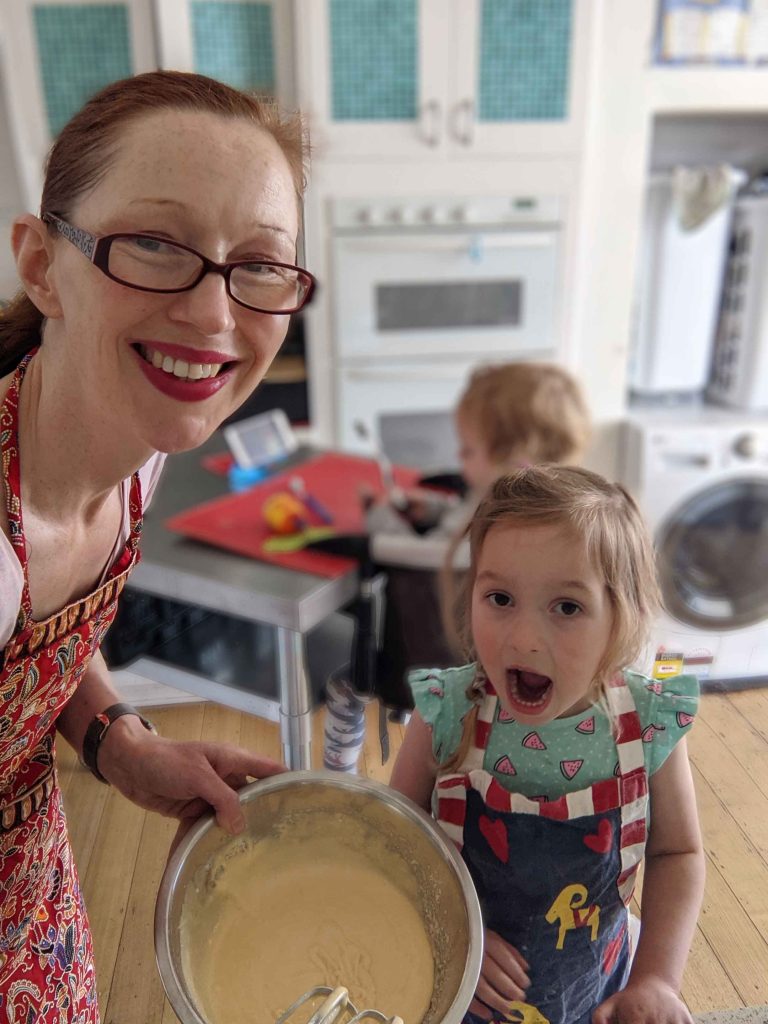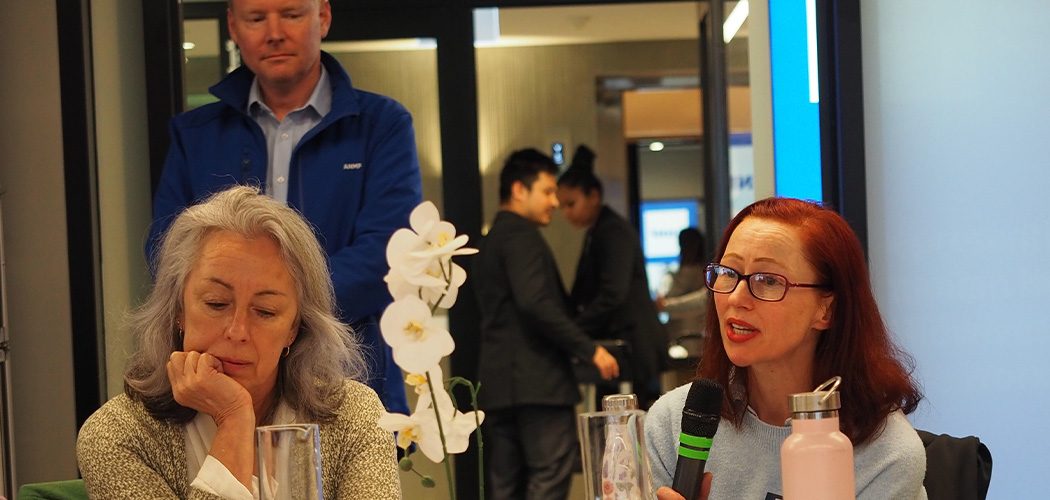With a diverse career in midwifery, advanced nursing practice and perinatal mental health, new ANMF Federal Vice President Astrid Tiefholz, from Tasmania, brings a unique voice to the union’s leadership.
“It’s important that we have diversity of voices from across the nation. It is really important to me to be able to represent Tasmania and be part of the national voice in nursing and midwifery.”
Astrid completed a nursing and midwifery double degree at Latrobe University in Melbourne.
“While initially my plan was to be a midwife, as I went through, I enjoyed nursing a lot more than I had expected to. Nursing offers a really privileged aspect of how we can connect with other human beings and to be of service to people in our community.
“We have such potential to have a positive impact on the lives of the people that we care for. We see people on their best days and their worst days and everything in between, so it’s really special to be a part of that journey with our clients and their family members and the community as a whole.”
In retrospect, says Astrid, she’s glad she did both nursing and midwifery as it gave her many opportunities to expand her sphere of practice.
“For a long time, I worked mainly in antenatal intrapartum and post-natal care, which I loved. As time went by, I found that I became more interested in other sub-specialties of midwifery.”
About 10 years ago, Astrid went back to become a lactation consultant. “Something that really struck me was that I felt inadequately prepared to meet the psychosocial and mental health needs of families. I started working in a mother baby unit and then went back and did a Masters in Mental Health Nursing focusing on women’s and children health.”
For the last five years, perinatal mental health from conception to 12 months post birth has been her specialty. “I’ve also been increasingly interested in mental health nursing for not just mothers but also partners, non-birth parents, same sex couples. The multitude of ways that people go into family formation and the amount of support that is needed.”
Collective strength in the union
A member of the ANMF for 20+ years, Astrid joined the union as a student at La Trobe University. She signed up when members of the ANMF Victorian Branch visited the campus during her second year.
There are many notable events that have stuck out in the union movement, including the 2006 March on the MCG against the Howard Government’s WorkChoices legislation.
“All the unions, including the ANMF were there; it was magnificent to be part of such a unified voice, to speak up and recognise that what we do together, matters so much more than the sum of the parts.
“At that time John Howard was saying ‘oh you couldn’t even fill the MCG’, but we gave it a good crack and people noticed.”
Astrid was also in Victoria during the ANMF Victorian Branch Respect Our Work campaign. “Just the sheer number of nurses and midwives who were speaking up, making their voices be heard about the importance of maintaining nurse patient ratios, providing workplace safety and support, and respect for the professional capacity of nurses.”
Having moved back to Tasmania in 2011, Astrid worked in Member Support at the ANMF Tasmanian Branch in 2012 and was a Workplace Rep at the Royal Hobart Hospital from 2013 for five years. She has been on the ANMF Tasmanian Branch Council since 2017.
“I’m passionate about making sure that we can band together and make our voices be heard. When it comes to any kind of negotiation in the workplace about pay entitlements, workplace safety, and standards, we are always stronger as a united voice than as individuals.”
Advancing the nursing and midwifery professions
As ANMF Federal Vice President, Astrid wants to bring her voice to the table around key issues including the underutilisation of the workforce and working to full scope of practice.
“There are a lot of barriers for advanced practise nurses to upskill to become NPs. There is a lot that we can do within the ANMF as well as aligning with the Australian College of Nurse Practitioners. Expanding the scope of practice and developing a larger NP workforce is really important.”
Likewise, there is limited capacity for mental health nurses to upskill and provide Medicare rebate services for ongoing counselling and support, says Astrid.
“There are so many scenarios where mental health support is required but isn’t always accessible or available. We have this workforce of mental health nurses who have the capacity to either provide counselling and psychotherapeutic services or who would be willing to upskill if there was a clear career path to do so.”
Astrid also sees greater opportunities for the deployment of mental health nurses in primary care programs, either within GP or NP-led clinics or in other community based mental healthcare.
“Even if you’re not working in mental health services per se, up to 40% of presentations at GP clinics are mental health related and you cannot extricate a person’s mental health from their physical health.
“I think we’re really missing out on the use of our existing workforce to provide that additional care that is so sorely needed. That’s what I’m really passionate about and wanting to represent further.”
Union wins
A mother of four children (currently aged five to 23), Astrid was actively involved in the union’s paid parental leave campaign. Her eldest was aged one when she started nursing and midwifery education.
“We need to accept that we live in a society now where the cost of living necessitates there being two working parents.
“There’s so much research and evidence about the importance of parental attachment to children, the nurturing that children get when they have access to paid parental leave. By being able to support that bonding, attachment, sleep, breastfeeding, that are so important for infant early infant development, and also parental identity.”
Astrid is also proud of the ANMF and other unions’ campaign for paid miscarriage leave/perinatal loss leave. “It took a very long time for formal recognition of the loss and bereavement that occurs with a still birth, miscarriage, or other reproductive loss. It is a huge step forward in providing that support for parents.”

With recent wins under the Albanese Government, including the ‘Commonwealth Prac Payment’ to be introduced this July, Astrid says it’s important not to take hard-fought for rights for granted.
“They’re very hard won, and they are very easily stripped away. It’s important that we make it clear that this is what people are entitled to, this is why it’s important and here’s why it has economic dividends, not just for individuals, but for the community as a whole.”
“Nursing as a degree program demands a lot of students. It’s so great to see the proposal for paid placement time for students at minimum wage. It’s tough for students to manage, particularly for students who are parents themselves, it is really hard to turn up for placement at 7am or be there until 11pm or be there on night duty.
“Students sacrifice a lot in terms of the financial pressures, the cost of living pressures, the impact it has on social and family life. It’s huge. People don’t go into nursing for fame and fortune; they go in for the love of it. But just because people go into nursing for the love of it doesn’t mean that they should be exploited for that commitment to service either.
“It’s really important that we’re supporting our students and qualified nurses and midwives at every point in their career.”








